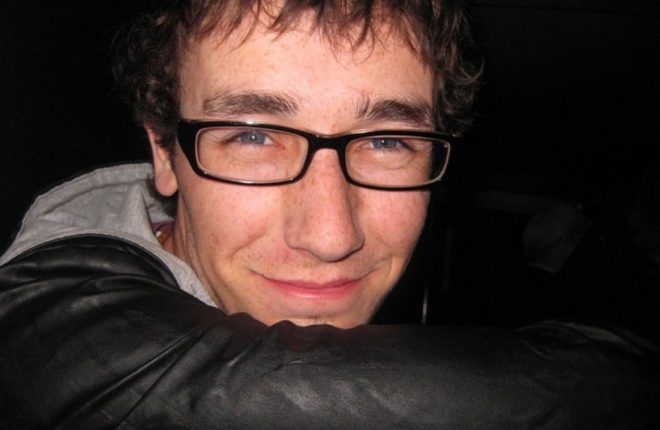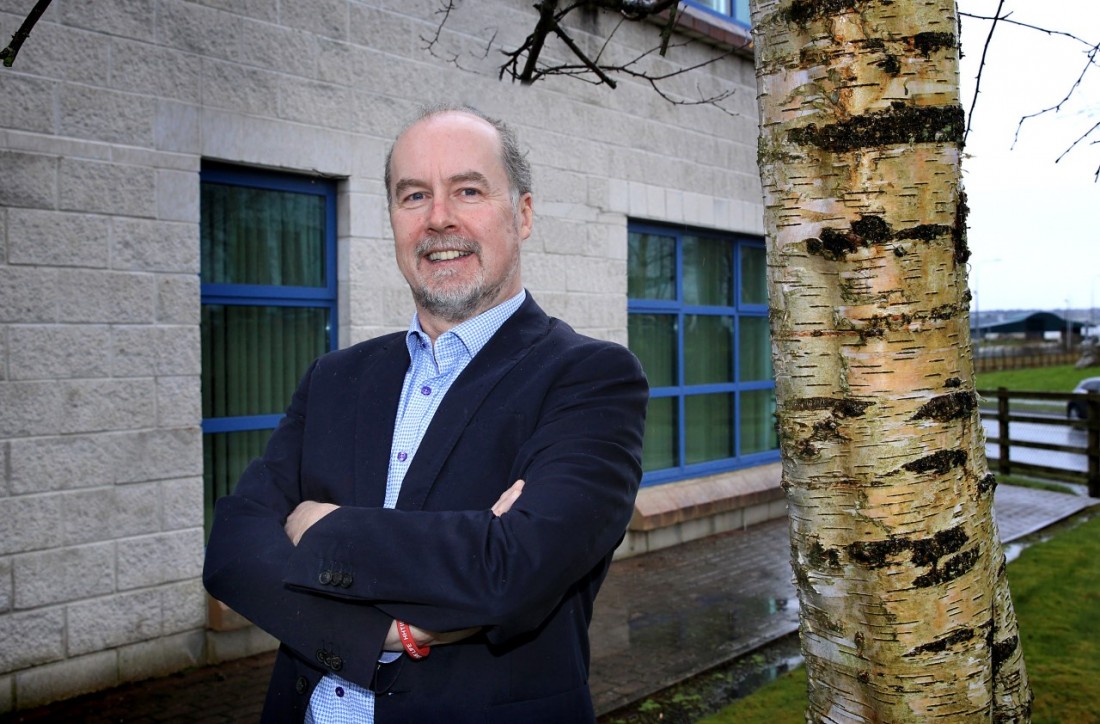FOR the five MacGinty children nose bleeds have always been a normal part of everyday life.
Down the side of their father’s chair, in his coat pocket, in his bedroom – there was always a bloodstained hankie.
Paudric MacGinty spent the best part of his 68 years not knowing what was wrong with him. And when his diagnosis eventually came, it came not through a medic but an interview given by Mike Nolan and consultant radiologist Dr Adrian Brady to the Late Late Show in 2002.
Mike was the father of nine-year-old Grace who had died from Hereditary Haemorrhagic Telangiectasia (HHT), an extremely rare genetic condition.
“It was at that point dad realised what he had,” said Paudric’s son, Michael, ahead of World Rare Disease Day this Saturday.
HHT is a disorder in which some blood vessels do not develop properly. As a result the space between the arteries and veins are often fragile and can burst and bleed much more easily than other blood vessels. This can lead to bleeding in the nose, lungs, brain, spinal cord and gut/or liver.
HHT affects around one in 5,000 people worldwide. But in the case of the five MacGinty brothers and sisters – Michael, Padraig, Paul, Mildred and Dara – all but Paul have the disorder.
So too did Dara’s 22-year-old son, Paul. But in a tragedy that rocked the family, Paul died in 2012 from a traumatic bleed in his lung while on holiday in Paris.
Paul’s passing led his heartbroken mum Dara to set up the support foundation HHT Ireland.
“You always had bloody hankies around the house, it was normal,” revealed Michael.
“My granny would have bled profusely. She ran a clothes shop in Ballybofey but she bled constantly. So did my dad who had a clothes shop in Letterkenny. It never stopped them from running a business but my granny died at the age of 80 from profuse bleeding. My dad died in August 2004 as a result of complications from HHT. He was 68.”
Nosebleeds are the most common manifestation of HHT but in Michael’s case he can bleed from his lips or even his ears.
“We all have bleeding points in our noses. We also have some points in our lungs which may bleed but hopefully not. Some of these points do have to be embolised, as in Paul’s case.”

Michael’s nephew Paul Woods who died as a result of HHT. He was just 22 and on holidays in Paris with his girlfriend at the time.
Paul Woods was living in Malahide and was being monitored and checked. He had just finished his degree and he and his girlfriend had rented an apartment in Paris with the money they had saved.
“They were there a week when Paul started to feel unwell,” said Michael.
“He drowned, that is basically what happened to him. He would have been aware of it but it would not have taken very long. He was only 22.”
A common word among those living with HHT is ‘pressure’.
“If I’m sitting having a conversation I usually feel a pressure, an indication that I am going to bleed,” explained Michael.
In a bid to avoid ‘pressures’ HHT patients live adapted lifestyles. In Michael’s case he stays away from warm rooms and avoids eating curry. Tannins in red wine are another trigger.
“I have learnt to adapt my lifestyle to deal with it. I don’t go to the gym and I don’t do weights because of the pressure it would put on me. Walking is fine but weights wouldn’t be.”
In the case of Paudric MacGinty, Michael’s father, his diagnosis came too late in terms of receiving medical help. But for those with the condition the good news is that once they realise they have HHT they can be treated and monitored.
There is no cure for the disease but thanks to advances in technology that is changing. Children have a 50/50 chance of inheriting HHT but very recent developments in the field of IVF have led to doctors being able to isolate and remove the HHT gene, leaving a perfectly healthy egg.
In short, the next generation of children born to adults with the disorder will be in the clear.
Michael MacGinty added, “In my dad’s case he did not know what he had and his last few years were very difficult. They could not do much for him but at least we were able to treat him for the right thing rather than the wrong thing.
“If I had one wish it would be that every person with HHT would become aware that they have it. At least one person in every 5,000 has HHT and the aim of HHT Ireland is to connect with those 1,000 to 1,200 people in the country with it.”
Looking to the future, Michael said he had no intention of letting his condition get the better of him.
“There is the possibility that HHT will cause much more serious problems in the future but for now it is no more than an inconvenience. And apart from the bloody inconvenience, life is pretty bloody good.”
If you know someone who gets regular nosebleeds ask them to check out www.hhtireland.org to see if their symptoms match HHT.










